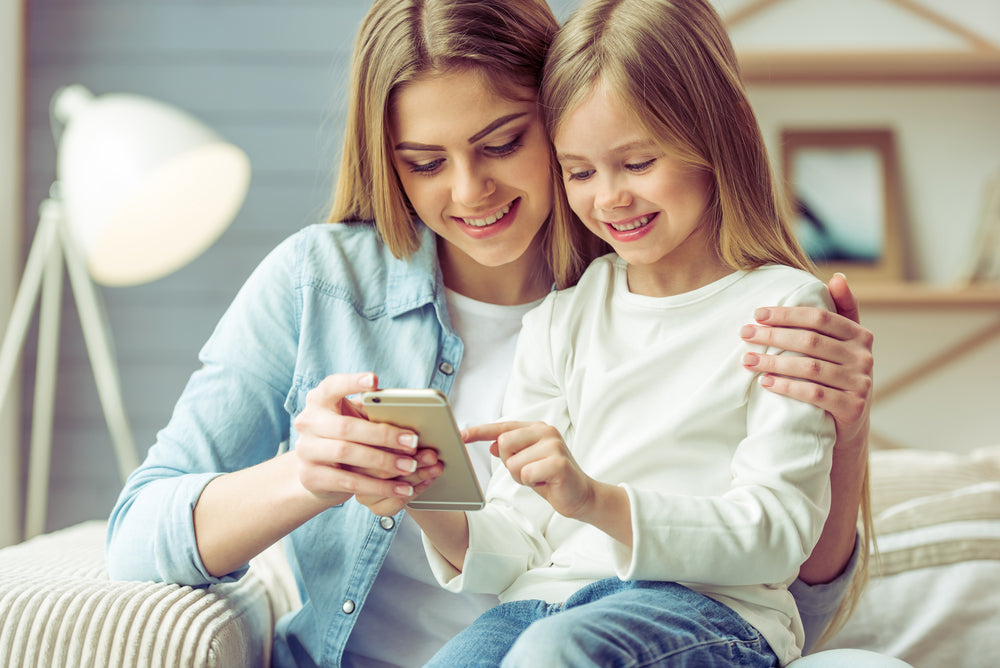My name is Dominique and I am the founder of baby deedee. In this back to school period, I thought it was particularly timely to share this piece we received about anxiety in kids.
Having a daughter who had a social anxiety disorder called selective mutism appear at the age of three, when she started preschool, this topic is particularly important to me. My daughter is our third child - so when her first parent teacher conference came around in November I was expecting to see a few drawings and go on my merry way.
I was shocked to find out that my VERY talkative child had not said a word to anyone in school since the beginning of the year. In the case of my daughter, we were able to get the help we needed and she has gradually learned to use her “brave” voice. This article is a great reminder that it is not easy to be a kid and that children can feel very anxious in unfamiliar settings like school.
—
Each day, we get hit with anxious situations: deadlines at work; cars that fail to start; overdue bills; full schedules and health concerns. We sometimes look at children - no matter how old they are - and think that their lives are so much simpler, but sometimes they’re not.
Teenagers are worried about tests at school and social pressures. Younger kids are worried about schoolwork as well, but they’re also probably worried about being bullied or not doing good enough work to please their parents. Even younger children get extremely anxious, too.
According to the Anxiety and Depression Association of America, 80 percent of children with a diagnosable anxiety disorder do not get treatment. In addition, anxiety can overwhelm children to the point where they have frequent headaches or stomach aches, cry often, have panic attacks or get angry. And children kindergarten age and younger with social anxiety disorder can feel the distress intensely enough that it affects their learning, playdates with other children and even relationships with their families.
There are a few things parents of these younger children can do to alleviate social anxiety, help them adjust to situations and improve their social skills.
Help Them Adjust Gradually to Social Situations
In a process Rene Jain at The Huffington Post calls “laddering,” gradually expose the child to social situations such as birthday parties or at playgrounds with other children and break the exposure down into manageable steps such as moving with the child closer to the group every 20 minutes or so. This might also help you determine what specifically the child feels anxious about with others. Is the noise of the children playing too loudly when you get closer? Is it fear of the bigger kids in the group? Once you determine where your child starts to feel anxious, you can then “ladder” in some next steps to where the child doesn’t feel the anxiety and will eventually join the others.
Consider Using a Therapy Animal
Service dogs can offer comfort and support for anxious children. The dog becomes a confidant for the child, a source of trust and connection. A service dog requires no special training, but does require a health exam. In fact, some families volunteer their dogs to be therapy animals that help with anxiety. The dog gives a sense of security for the child while also providing a sense of purpose for its owners.
Teach Them How to Cope
Children with social anxiety disorder need to know that they are loved and supported by their parents. One way to show that is to acknowledge their feelings, show empathy, and gently teach them how to cope with those feelings. A technique suggested by CopingSkillsforKids.com is a grounding activity called 5-4-3-2-1. When the child feels anxious, tell her to name five things she sees, then name four things she can feel, three things she can hear, two things she smells and one thing she can taste. It is a reminder to bring the child into the present and help her relax.
Your children need to know you have their backs, so you should refrain from demonstrating any of your own anxiety when helping your children deal with theirs. If you help them adjust to the anxiety starting at a young age - helping them get used to social situations, using a therapy dog for comfort and learning some coping mechanisms - the chances are good that they will grow become socially confident adults.
Jenny Wise (author) created Special Home Educator as a forum for sharing her adventures in homeschooling and connecting with other homeschooling families.
Photo Credit: Pexels.com


Leave a comment